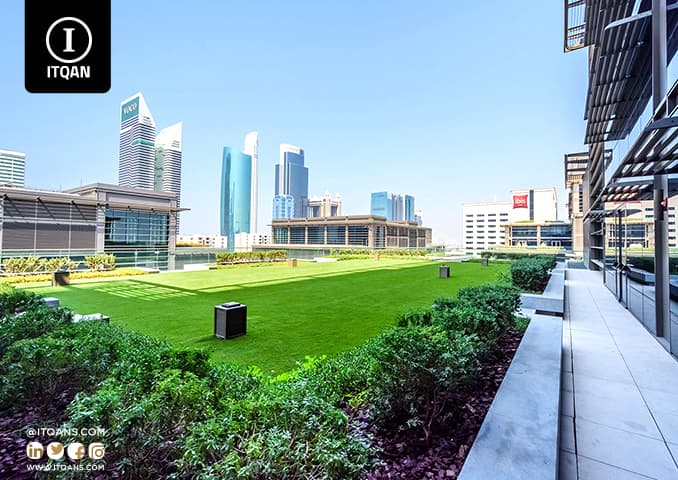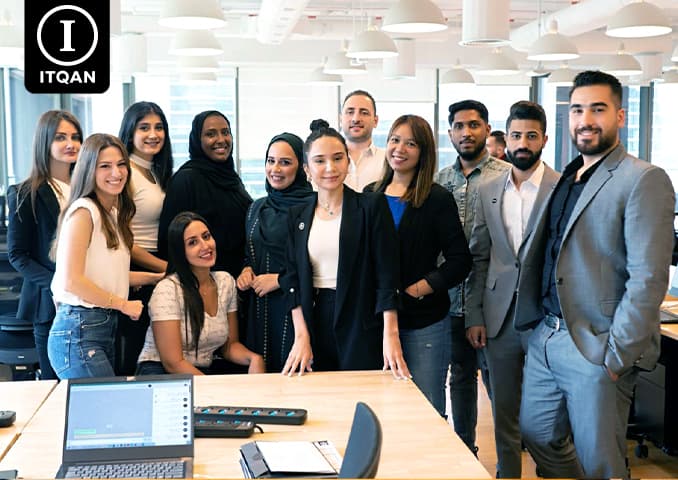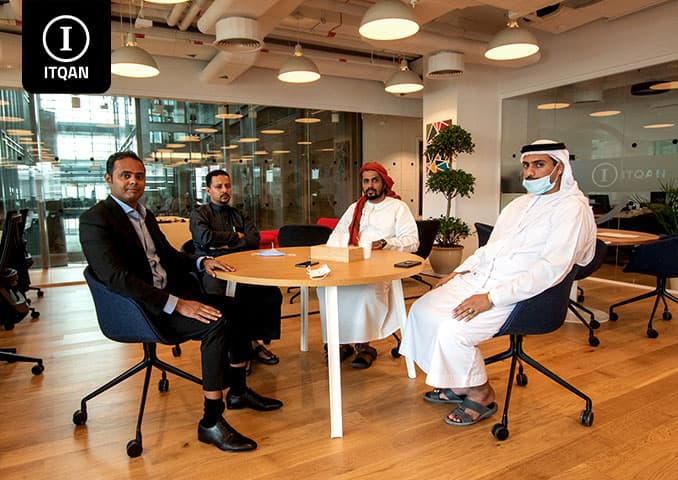Dubai is one of the world’s leading destinations for investment and business, offering an ideal environment for establishing companies thanks to its advanced infrastructure and regulatory facilities. Among the many options, Dubai’s free zones stand out as an attractive option for ambitious investors looking for a flexible business environment and distinct business advantages. Establishing a company in one of Dubai’s free zones is not only limited to providing administrative facilities, but also includes a range of privileges that make these areas an ideal choice for businesses.
Dubai’s free zones are characterized by providing full ownership of companies to foreigners, allowing investors to have complete control over their companies without the need for a local partner. In addition, these areas provide full tax exemptions on profits and returns, which contributes to enhancing profitability and economic growth. On the other hand, free zones are characterized by fast and flexible registration procedures, allowing new companies to start their operations quickly and efficiently.
Dubai includes several specialized free zones that meet the needs of various industries and trade, such as Jebel Ali Free Zone, Dubai Science and Technology Park, and Dubai Internet Zone. Each free zone offers a range of services and privileges designed to support business growth and facilitate its operations.
These factors make establishing a company in the Dubai Free Zone an attractive option for investors, due to the strategic advantages and great business opportunities it offers. In this article, we will review the steps to establishing a company in the Dubai Free Zones, focusing on the benefits that make these areas a vital hub for global business.

جدول المحتوى
ToggleSteps to establish a company in the Dubai Free Zone
Establishing a company in a free zone in Dubai requires following specific procedures. Here are the general steps to establish a company in a free zone in Dubai:
1- Choosing the type of company: You can choose the type of company that suits you, such as a joint stock company, a limited liability company, or a sole proprietorship.
2- Choosing the free zone: Choose the free zone in Dubai that suits your business activity.
Determining the business activity: Determine the type of business activities that the company will conduct in the free zone.
3- Determining the legal form of the company: Options may include a sole proprietorship, a limited liability company, a joint stock company, or a partnership.
4- Preparing the necessary documents: Documents may include a passport, personal photos, address confirmation documents, and other required documents.
5- Submitting the registration application: You may need to submit the registration application to the competent authorities in the free zone.
6- Establishing the company: After the approval of the authorities, the legal procedures for establishing the company must be completed.
7- Obtaining the necessary licenses: You may need to obtain the necessary government licenses to practice commercial activities in the free zone.
8- Opening a commercial bank account: A commercial bank account must be opened in the name of the company in an approved bank.
9- Registering with the Department of Economic Development: After establishing the company, it must be registered with the Department of Economic Development in Dubai.
Factors that affect the cost of setting up a company in a free zone
The cost of setting up a company in a free zone in Dubai is affected by several basic factors, including:
Type of company: Determining the type of company (such as a limited liability company, a joint stock company, or a branch of a foreign company) greatly affects the costs. Each of these types may require different requirements and licenses.
Required license: Costs vary depending on the type of license the company needs. There can be commercial, industrial, or professional licenses, each of which comes with different costs.
Location and free zone: Costs vary depending on the free zone you choose. Each free zone in Dubai has its own fees for rent and licenses, in addition to the benefits and services provided.
Size of company and scope of activity: Large companies or those that require large office spaces or special equipment may face higher costs compared to small companies or those that require less space.
Rent and utilities: The cost of renting offices or commercial spaces varies greatly from one area to another. In addition, additional costs may include the costs of utilities and basic services.
Legal and administrative consultations: The costs of legal and administrative consultations to establish the company, including preparing documents and licenses, may also affect the total cost.
Government fees: Government fees include the cost of registering a company, issuing licenses, and renewing them. These fees vary depending on the type of company and the type of license.
Labor and employment: The costs of hiring employees, including their salaries, work visas, and social insurance, form part of the costs of establishing a company.
Taxes and insurance: While most free zones offer tax exemptions, there may be additional costs related to social and health insurance, which must be taken into account.
Logistics: If the company requires logistics activities such as warehousing or shipping, the costs associated with these activities will also affect the overall cost.
Licenses required to establish a company in the Dubai Free Zone
When establishing a company in one of the free zones in Dubai, you need to obtain specific licenses that match the type of business activity you intend to carry out. The basic licenses required include:
Commercial licenses: These licenses are granted to companies that carry out commercial activities such as selling products and services. Commercial activities include retail, wholesale, and e-commerce.
Industrial licenses: These are granted to companies that operate in the field of manufacturing and production. These licenses include activities related to the production and manufacture of goods and products.
Professional licenses: These are granted to businesses that provide professional services such as legal consulting, accounting, and training. Professional activities include providing non-commercial services.
Sublicenses: In some cases, companies may need additional licenses depending on their activity. For example, export and import companies may need special licenses to deal with customs.
Activity license: Some free zones may require a special license that enables the company to practice the activities specified in its plan.
At the end of our article on establishing a company in the Dubai Free Zone, we find that this investment environment provides many opportunities and advantages that make it an ideal destination for entrepreneurs and investors from all over the world. The free zones in Dubai are characterized by providing incentives and tax exemptions, allowing investors to focus on growing their businesses without worrying about high tax costs. In addition, these areas provide complete freedom to own companies 100% for foreigners, which enhances Dubai’s attractiveness as a global business center.
The free zones are characterized by flexibility in establishment procedures, which speeds up the process of starting a business and contributes to achieving business goals efficiently. Modern infrastructure and advanced logistics systems also contribute to supporting the growth and sustainability of emerging companies. Companies in these areas enjoy seamless access to regional and international markets, which enhances opportunities for expansion and growth.
In addition, the free zones in Dubai provide a variety of licenses and business activities, allowing investors to choose the most appropriate for their economic activities. The government support provided and specialized advisory services contribute greatly to facilitating all procedures and overcoming any obstacles that investors may face.
The decision to establish a company in one of the free zones in Dubai is a strategic move that carries many benefits. By taking advantage of the incentives and advantages provided by these zones, investors can achieve their business goals effectively and successfully. Dubai remains, without a doubt, a leading investment destination that deserves serious consideration by any investor looking for an encouraging and supportive business environment.
The most important frequently asked questions about establishing a company in the Dubai Free Zone
What are the main advantages of establishing a company in the Dubai Free Zone?
Free zones provide tax exemptions, complete freedom to own the company by 100% for foreigners, ease of establishment procedures, and facilitation of employment procedures. They also provide advanced infrastructure and logistical facilities.
What types of companies can be established in the free zones?
You can establish limited liability companies (LLC), commercial companies, industrial companies, service companies, and investment companies, depending on the activity you wish to carry out.
Can I own 100% of the company’s shares?
Yes, in free zones you can own 100% of the company’s shares without the need for a local partner, giving you complete control over the business.
How long does it take to set up a company in a free zone?
The process of setting up a company in a free zone usually takes from a few days to a month, depending on the speed of preparing the documents and approving the application.
What documents are required to set up a company?
Documents typically include passports for investors and directors, a business plan, an incorporation application form, a previous company registration certificate (if applicable), and an office lease.

















